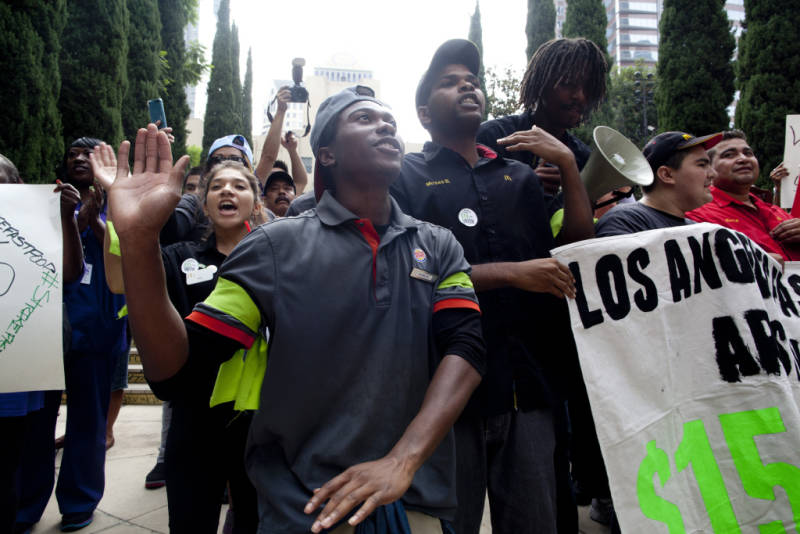Harvey said that although her group opposes the ballot measure, it might be open to a less rapid-fire approach from state lawmakers.
"Were the Legislature to consider a more gradual step-up as they did from the seven to eight, and then the eight to nine and 10, we could certainly look at it," she said, referring to previous minimum wage increases. “I think the devil is in the details.”
There's also a competing ballot initiative that's still trying to qualify for the November ballot that includes increased sick time.
Betty Jo Toccoli, president of the California Small Business Association, hopes the minimum wage issue will be resolved in the Legislature. She gave the current Senate bill a 50/50 chance of passing.
"I think there are those legislators that think the easy way out is to just let the initiative go through and then they won't be blamed for it, and then I think there are also legislators that recognize that they need to work on it," she said.
Toccoli said California businesses would like to see lawmakers carve out exemptions for students so they can work for lower wages. They also want to see exemptions for restaurant servers so they can still get tips.
One of the biggest irritants in the ballot initiative for businesses is a provision for annual cost-of-living increases once the $15-an-hour mark has been reached.
Hortencia Armendariz, director of health care outreach at SEIU-United Healthcare Workers, left room for the possibility that the sponsors could remove the ballot initiative if the Legislature were to act, but said they wouldn't do so for anything less than what their ballot initiative proposes. Their measure includes cost-of-living increases.
"Where we stand is nothing less than $15 as an increase," she said. "Right now we're very happy that it qualified."
Nicholas Adcock, vice president and governmental affairs manager for Greater Riverside Chambers of Commerce, said his group has yet to take an official position on the ballot measure but that it has deep concerns about minimum wage increases.
"Economies are different from city to city," he said, pointing out that well over half of the businesses in Riverside have fewer than 10 employees. "We're not talking very big profit models with huge profit margins."
Riverside, according to Adcock, doesn't have the resources of larger cities like San Francisco and Los Angeles. He fears a minimum wage increase could stifle small business growth, which is still in recovery after the housing crisis that hit the area hard during the Great Recession.
"It's going to force them to make some very tough decisions," he said, speaking of small business owners. "We want more jobs to be created."
California Counts is a collaboration of KPBS, KPCC, KQED and Capital Public Radio to report on the 2016 election. The coverage focuses on major issues and solicits diverse voices on what’s important to the future of California.
